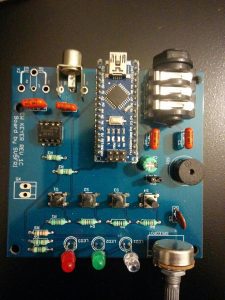With this script you can install and configure in the few minutes the DxSpider Cluster with Mojo
For any issue or support relevant to script:
- Create issue ticket here
- Use comment or contact form
Installation Steps
With this script you can install and configure in the few minutes the DxSpider Cluster with MOJO repository
Installation Steps
Download script.
wget https://github.com/glaukos78/dxspider_installation_v2/archive/refs/heads/main.zip -O dxspider_installation.zip
Must be run as root user.
Uncompress & change permissions
unzip dxspider_installation.zip
cd dxspider_installation_v2-main/
chmod a+x install_dxspider.sh
Run script and follow the messages.
./install_dxspider.sh
Script has been tested on the following Operating Systems (Linux Distributions)
CentOS 7
CentOS 8
Rocky 8
Raspbian 9 (stretch)
Raspbian 10 (buster)
Raspbian 11 (bullseye)
Debian GNU/Linux 9 (stretch)
Debian GNU/Linux 10 (buster)
Debian GNU/Linux 11 (bullseye)
Ubuntu 22.04 LTS
Ubuntu 22.04.1 LTS
Fedora Linux 37 (Server Edition)
Fedora Linux 37 (Workstation Edition)



Recent Comments